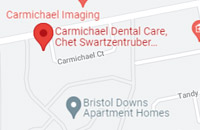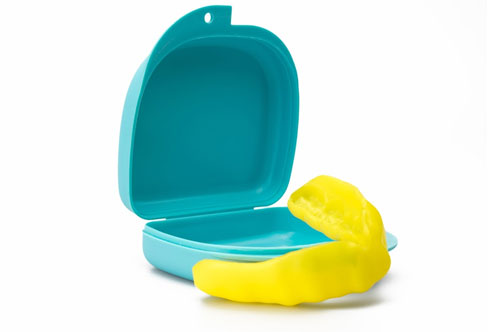Most of us can make some improvements to how we brush our teeth, whether it’s the kind of brush we use or how long we brush. Even when you brush your teeth can be important.
To make the most of your oral hygiene, check out our advice from our dentists on when to brush your teeth. Even if you do an awesome job of brushing at home, remember to visit our office at least twice a year for professional dental cleanings.
It’s tough to remove plaque from every place where it can cause trouble. Our team will do so, using their special tools. In addition, exams give our dentists an opportunity to check your mouth for signs of trouble. They’ll look for early signs of cavities and gum disease, as well as destructive habits like teeth grinding. The earlier we can address these kinds of issues, the less damage they’ll do.
If you have any questions about our brushing advice or need to make an appointment for your next exam, call Carmichael Dental Care at 334-600-1423.
When to Brush Your Teeth in the Morning
Some of us brush before we eat breakfast and some of us brush after eating. We recommend brushing before your meal. That way, you’ll eliminate all of the plaque that builds up on your teeth while you sleep. Our saliva doesn’t flow freely as we sleep, so it’s an especially good time for plaque to form. If you don’t remove the plaque before eating, the bacteria in plaque will interact with your breakfast, potentially causing cavities.
Bonus: brushing right away will get rid of your “morning breath.” Maybe that kiss near the coffee pot with your significant other will last a little longer!
When to Brush Your Teeth After Eating
Tooth enamel is incredibly sturdy; in fact, it’s the hardest substance in the human body. However, acids in the food you consume eat away at your enamel. Acid levels in your mouth are elevated during meals, so it’s an especially sensitive time for teeth. That’s especially true if you consume substances high in acid like coffee or juice. Your saliva washes away the acids in your mouth and restores its proper pH level.
That’s why you should wait at least 30 minutes after you eat before you brush teeth. If not, you risk damaging your enamel when its at its weakest. Even a toothbrush with soft bristles can do some damage. If possible, it’s better to rinse your mouth with water right after eating, then brush in the next hour or so. Chewing sugarless gum will also help get your saliva flowing, so it can do its work.
Make Sure You Brush Before Bedtime
It’s important to brush your teeth before you turn in for the night. It gives you a final chance before sleep to remove the tiny bits of food you’ve accumulated all day that may still be in your mouth. You should floss too, to get the food debris that is hiding between teeth. Again, saliva production slows at night. This gives any remaining food particles a greater chance to interact with bacteria and do a number on your tooth enamel.
Try Our Other Tooth Brushing Tips
Here are some other ways you can get the most out of brushing your teeth:
- Always Use a Soft-Bristled Brush – It’s important to always use a brush with soft bristles, because they are easier on your teeth. Also choose a brush with a small enough head that it’s easy to reach all areas of your mouth.
- Don’t Brush Too Hard – Overly vigorous brushing can also damage your enamel. Take it easy on your teeth, using a gentle circular motion.
- Brush for Two Minutes – Brush for two full minutes, every time you brush. To make it easier, upload a two-minute song you like on your phone and listen while you brush.
- Get a New Brush Every Few Months – It’s a good idea to replace your brush every three months or so, or any time the bristles look frayed. Rinse your brush well and keep it as dry as possible between brushing sessions.
Our dentists are happy to answer any questions you have about oral hygiene, including when to brush your teeth. Call Carmichael Dental Care at 334-600-1423.
Visit Carmichael Dental Care
We can see you as soon as tomorrow!





